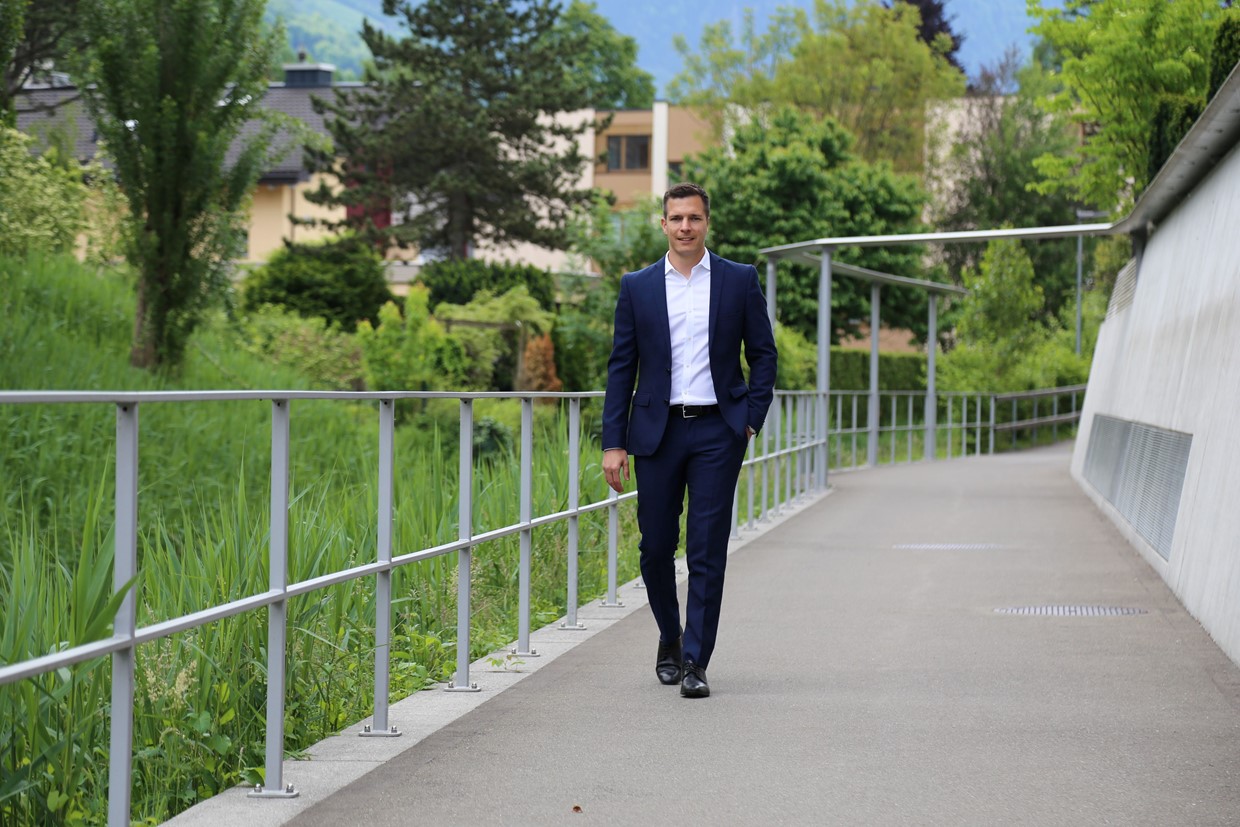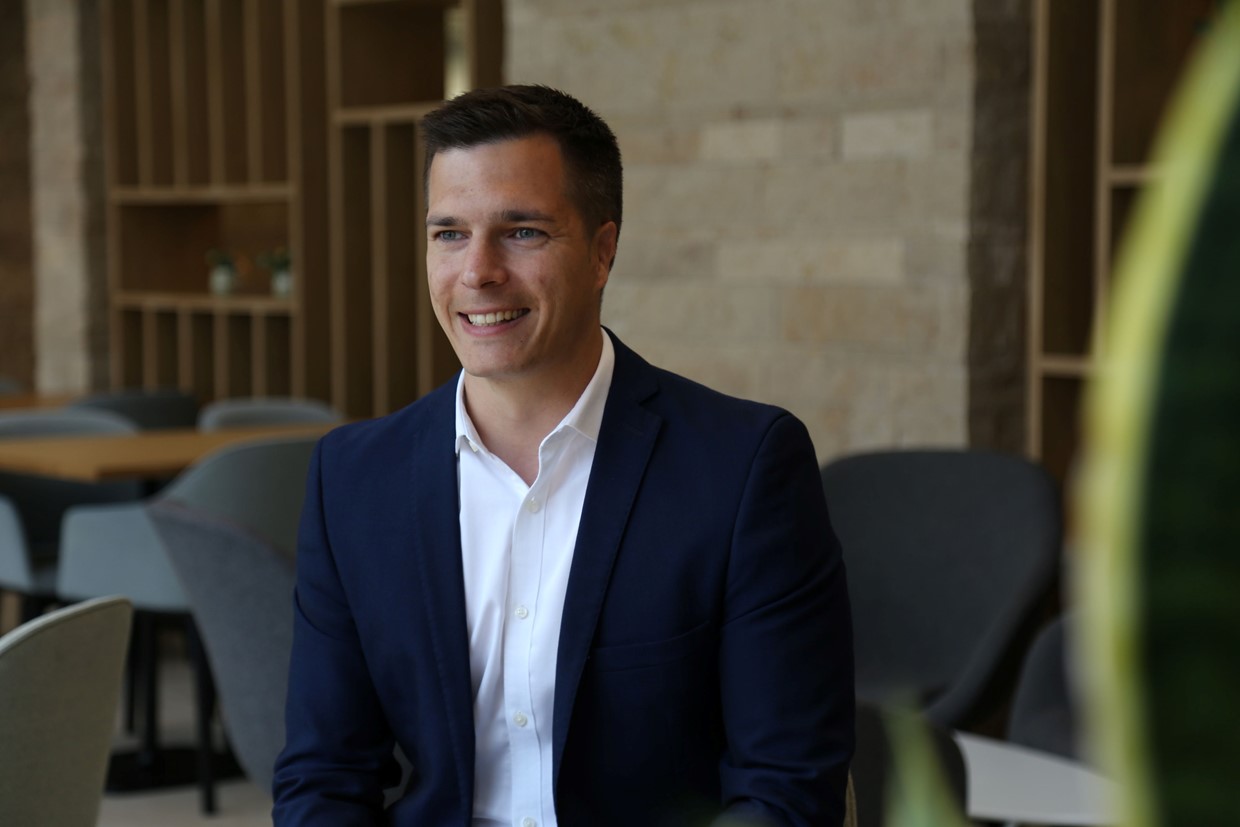Information checkedInformation unaudited Information geprüft Information ungeprüft “Climate change will not vanish overnight”


Group Treasury has built an impressive ESG success story over the past few years: since 2019, it has reduced more than 80 % of financed greenhouse gas emissions in its proprietary investments. A conversation with Alessio Manis about sustainability, returns, and the current ESG backlash.
Alessio, what does sustainability mean in the context of Group Treasury?
With the ACT-26 corporate strategy, sustainability has become increasingly important for our proprietary investments. In line with our goal of achieving net zero greenhouse gas emissions by 2040, we have made significant efforts to reduce our financed carbon footprint. Our overarching objective is to cut financed greenhouse gas emissions by 30 % by 2026. At the same time, our sustainable investment approach ensures that social and governance issues are also taken into account. Sustainability, therefore, means more than “just” reducing greenhouse gases.
What characterises the sustainable investment approach?
Our colleagues in Asset Management developed the sustainable investment approach, which we then adapted for our own purposes. The most important element is the positive and negative screening applied to new investments: based on various criteria, we decide whether or not to invest in specific companies. For example, we avoid companies that violate international standards or produce controversial products, such as tobacco, gambling, or military weapons. At the same time, we make targeted investments in companies that prioritise sustainability. The key factor here is the ESG rating provided by a reputable ESG data provider.
In recent years, you have significantly reduced the greenhouse gas emissions financed by Group Treasury. Most people probably think of smoking chimneys and oil rigs when they hear the term. What does this have to do with a bank?
Of course, we at LLB do not have smoking chimneys or oil rigs. However, as a bank, we still bear responsibility: when we invest capital in companies that emit greenhouse gases, we are partly accountable for the resulting emissions. This is what is meant by “financed” greenhouse gas emissions – we do not generate these emissions ourselves, but our investments enable them. That is why they are partially attributed to our carbon footprint. Simply put: if I hold 1 % of a listed company, I must also account for 1 % of that companyʼs emissions.
And how do you manage these “financed” emissions?
Thatʼs not so easy. As a bank, we must comply with various regulatory and statutory requirements when managing our proprietary investments. At the same time, we want our portfolio to remain diversified and profitable. To contribute to achieving global climate goals, Group Treasury relies on a mix of different instruments. This includes, on the one hand, the sustainable investment approach we have already discussed. On the other hand, in 2022 we decided to exercise our voting rights on shares in line with the Socially Responsible Investor (SRI) Policy – meaning we actively advocate for responsible corporate governance and sustainability at the companies in which we invest. Finally, in 2023 we resolved to consider the carbon footprint of issuers in new investments and to stop investing in the fossil fuels sector.
Oil and gas are still seen as cash cows. Have you experienced lower returns due to the phase-out?
Admittedly, our investment universe is limited by regulatory requirements. At present, we forgo only a handful of issuers whose returns are only marginally higher than those of alternative investments. However, this picture could change in the long term if more investors adopt a similar approach to LLB. For example, if other financial institutions follow our lead and exit the fossil fuels sector, returns in that sector may rise due to the declining number of investors. This, in turn, would be accompanied by higher risks.
Do you personally fear a sustainability backlash?
Many people have become more sceptical about the topic. And sometimes the criticism may well be justified – for example, the very rapid pace that sustainability regulation has taken in recent years. At the same time, we must not assume that climate change will simply vanish overnight just because it is no longer politically fashionable. In this respect, I believe it is right that we at LLB remain committed to our strategic greenhouse gas reduction target.
About Alessio Manis
Alessio joined Group Finance at LLB in 2016. In his free time, the Swiss national with Italian roots spends a lot of time with friends and family. He has a one-year-old son and enjoys walking, jogging, or going for a swim at nearby Lake Constance. When on holiday by the sea, he likes to take the opportunity to go diving.
*ESG-Backlash
Alessio joined Group Finance at LLB in 2016. In his free time, the Swiss national with Italian roots spends a lot of time with friends and family. He has a one-year-old son and enjoys walking, jogging, or going for a swim at nearby Lake Constance. When on holiday by the sea, he likes to take the opportunity to go diving.

